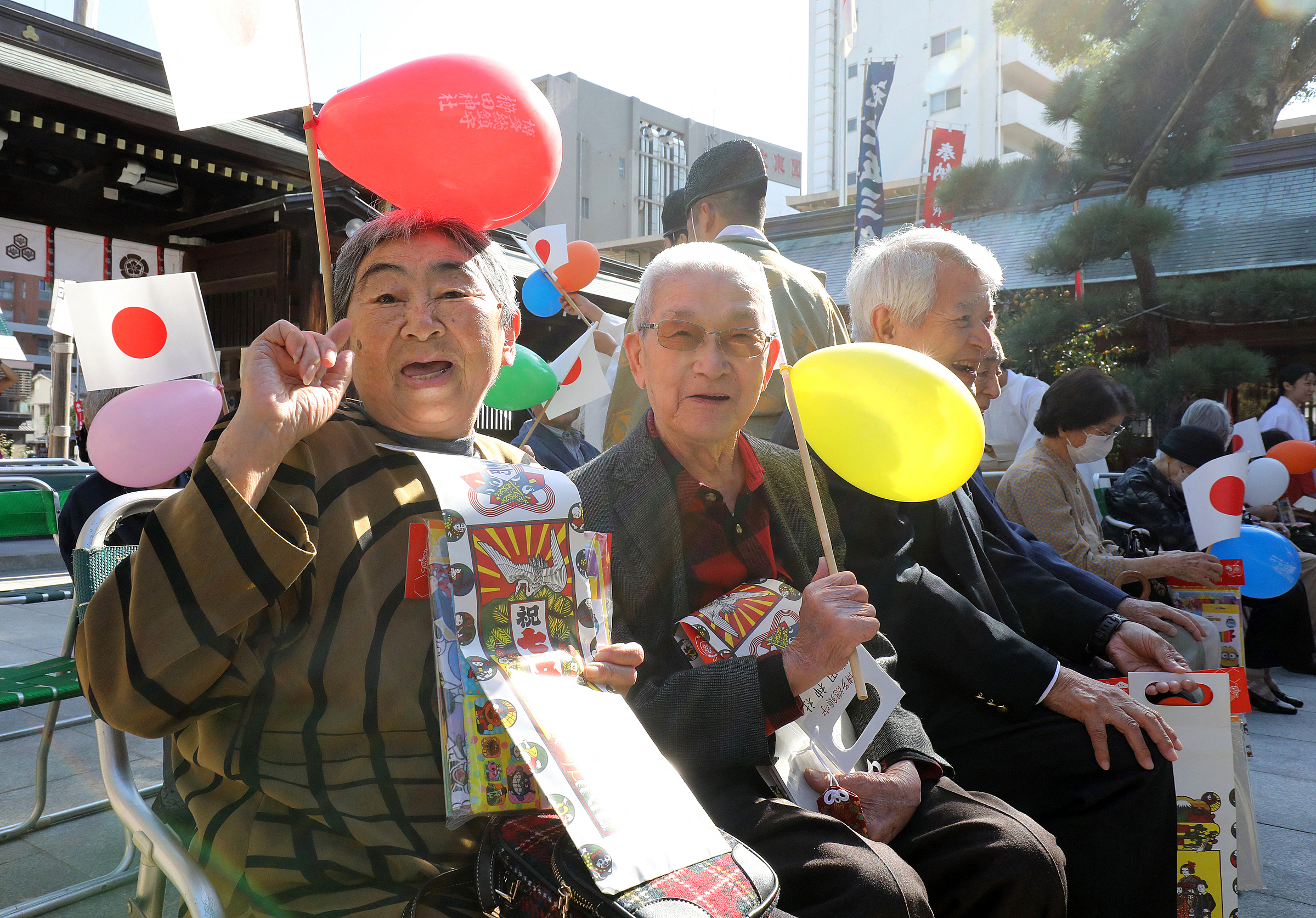Japan's Ministry of Health, Labour and Welfare announced on 12/9 that the number of citizens over 100 reached 99,763 as of September, marking 55 consecutive years of growth and an unprecedented high.
Of these nearly 100,000 centenarians, women comprise 88%. The oldest person is Shigeko Kagawa, a 114-year-old woman from outside Nara. The oldest man is Kiyotaka Mizuno, 111, from the coastal city of Iwata.
Health Minister Takamaro Fukoka congratulated the 87,748 women and 11,979 men who have reached the age of 100, expressing "deep gratitude for their significant contributions to society over the years."
 |
Elderly Japanese people attend a festival in Fukuoka, 2023. Photo: AFP |
Elderly Japanese people attend a festival in Fukuoka, 2023. Photo: AFP
Japan has the highest average life expectancy globally. It is also one of the fastest-aging societies with one of the lowest birth rates.
In the 1960s, Japan had the lowest proportion of centenarians among the G7 nations. When the government began its survey in 1963, it recorded only 153 people over 100. This figure rose to 1,000 in 1981 and reached 10,000 in 1998.
According to Western media, Japanese longevity can be attributed to healthy diets, continued physical activity in old age, low obesity rates, and lower incidences of heart disease and cancer.
Duc Trung (BBC, Mainichi)












